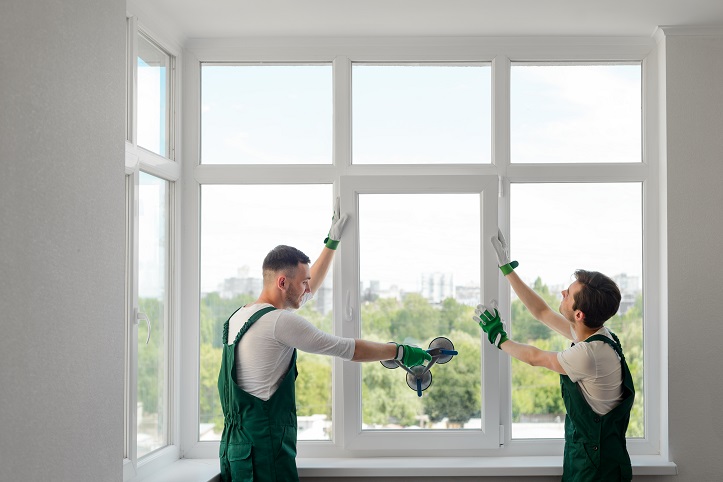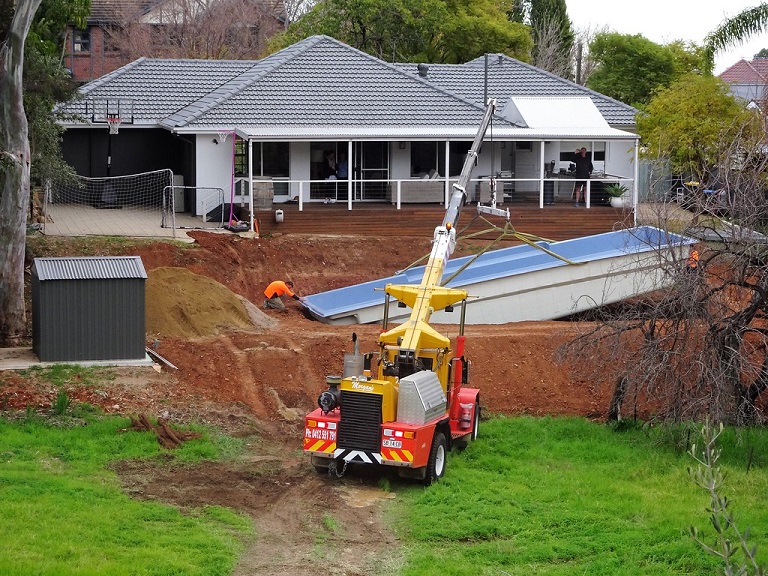Choosing the right window contractor can make or break your home renovation. The installer you hire plays a huge role in long-term performance and return on investment. That goes for upgrading old windows, reducing energy bills, and refreshing curb appeal.
But there’s tons of contractors all over the place! It’s difficult to know who’s qualified, who’s cutting corners, and who actually understands your home’s unique needs.
Skilled contractors do more than just install new windows. They help you choose materials, maximize energy efficiency, and make sure their jobs meet building codes and warranty standards.
Poor installation can lead to drafty rooms, rising energy costs, or even water damage down the road. A properly installed energy-efficient window system can boost your home’s value, reduce maintenance needs, and deliver savings for years.
This guide walks you through what to look for, what to ask, and what to avoid when selecting a window contractor. Whether you’re prioritizing energy efficiency, quality workmanship, or lasting value, you’ll find someone that fits your needs.
Why Hiring the Right Window Contractor Matters
A professional contractor installs windows that meet local codes and climate needs. That improves energy efficiency and prevents future damage, saving money and protecting your investment.
Installing new windows isn’t just about aesthetics. It’s about improving your home’s comfort, performance, and resale value. Poorly installed windows can leak air, allow moisture in, and void manufacturer warranties.
Choosing an experienced contractor avoids these risks and ensures a long-lasting upgrade.
A reliable contractor also understands your local climate and building codes. Those things have a huge impact on window performance. For example, contractors often recommend insulated vinyl windows to reduce energy transfer and lower heating and cooling costs.
But, hiring the wrong contractor can lead to a host of costly and avoidable issues. Improper installation can cause drafts, condensation between panes, warped frames, or even water damage inside your walls.
Over time, these problems can compromise the insulation of your home and lead to higher energy bills. In severe cases, you may need to replace the windows again. If that happens, you’ll be paying twice for the same project.
Worse yet, if the contractor isn’t licensed or insured, you could be left with little recourse when problems arise.
Window Contractor Qualifications to Look For
Hiring the right window contractor means knowing which qualifications, behaviors, and service details actually state reliability. Don’t just go for the lowest quote. Think about value, quality, and long-term performance.
Windows are a major investment in your home’s energy efficiency, resale value, and day-to-day comfort. A poorly chosen contractor can turn that investment into a liability. They might use shortcuts, subpar materials that fail within a few years, or violate code.
Here’s what to focus on:
- Licensing and Insurance Make sure the contractor is licensed in your state and carries liability and workers’ compensation insurance. This protects you from legal or financial liability if damage or injury occurs on-site.
- Experience with Energy-Efficient Windows Look for contractors who have installed modern vinyl replacement windows and understand different glazing, gas fills, and coatings The best contractors can also explain how various materials perform in your climate and how they affect long-term efficiency, durability, and cost.
- Local Knowledge A contractor familiar with your climate can recommend materials and insulation strategies suited to seasonal temperature shifts. For example, in areas with cold winters and hot summers, double-glazed vinyl windows with argon gas are a proven solution.
- Strong References and Portfolio Ask for recent customer reviews and job site photos. Bonus points if they’ve worked in your neighborhood. Local feedback is often more relevant than generalized testimonials.
- Detailed, Written Estimates Every quote should be clearly itemized and include materials, labor, old window removal, cleanup, and warranties. Avoid contractors who only give vague or verbal pricing.
- No High-Pressure Tactics A trustworthy contractor should inform instead of intimidating. Watch out for aggressive upsells, time-limited deals, or salespeople who won’t take no for an answer.
- Warranties and Post-Job Support A solid warranty should cover both the product and the labor. Clarify who handles service calls or fixes if issues arise after installation.
A contractor who meets these standards won’t just get the job done. They’ll do it correctly, efficiently, and with the type of craftsmanship that protects your home and budget over time.
Taking the time to screen now can prevent costly repairs, poor energy performance, and project delays later.
6 Questions to Ask Before Hiring a Window Contractor
Credentials aren’t everything when choosing the right window contractor. Transparency and trust must also be taken into account. Asking the right questions helps you test their knowledge, communication style, and whether they’re a good fit for your project.
A reputable contractor should be able to answer confidently and clearly without dodging details.
Here are the most important questions to ask before you hire:
- Are you licensed and insured in my state or county?
Confirm they meet legal requirements and are covered in case of accidents or property damage. This protects you from liability and ensures the company is operating legally and professionally.
- What brands or window types do you recommend for this climate?
A contractor with local experience will suggest materials suited to your region’s weather patterns. Choosing the right type of window for your environment improves long-term energy efficiency and performance. Also ask which window materials they typically install and why they recommend them for your home.
- Can I see examples of local projects you’ve completed?
Seeing real work, especially in homes like yours, can give you a sense of their craftsmanship and attention to detail. This helps you verify their quality and see whether their past projects align with your expectations.
- What’s included in your estimate? Materials, labor, disposal, cleanup?
A clear, written quote should spell out exactly what you’re paying for and help you compare contractors. It prevents hidden fees or surprise charges later in the project.
- Do you follow city permits and building codes?
Your contractor should pull the proper permits and install windows according to code to avoid future issues. Non-compliance can result in fines, failed inspections, or problems when selling your home.
- Do you offer product and installation warranties?
Understand the length and scope of coverage, and who to contact if something goes wrong. A strong warranty protects your investment if defects or installation issues arise.
Asking these questions upfront allows you to spot potential issues before signing a contract. It also sets clear expectations, so there are no surprises during the installation process or after the work is complete.
Red Flags: Warning Signs of Bad Window Contractors
Red flags include vague pricing, no license, pushy sales tactics, and a lack of local code knowledge. These signs often point to inexperience or unreliability.
Even if a contractor checks a few boxes, there are warning signs that may point to deeper problems. Identifying these red flags early can save you from stress, unexpected costs, or subpar results.
Ignoring them can lead to major setbacks. Homeowners who hire the wrong contractor often deal with incomplete projects, costly repairs, poor insulation, or water leaks.
Worse, if the contractor isn’t properly licensed or insured, you may be left paying out of pocket for work that doesn’t meet code. Or, you might be redoing the entire installation just to pass inspection.
Watch out for these common red flags:
- Unrealistically Low Quotes
- Lack of Licensing or Local Experience
- No Physical Office or Business License
- Pushy Salespeople
- Vague or Verbal-Only Quotes
Trustworthy contractors will offer transparency, documentation, and clear communication at every step. If something feels off, don’t ignore your instincts. Walk away and get a second opinion.
Window Installation Process: What to Expect
Replacing your windows isn’t just about swapping out the old for the new. Proper installation is critical to performance, longevity, and energy efficiency.
A reputable window contractor should follow a clear, step-by-step process to ensure your new windows are airtight, level, and fully compliant with local building codes.
Skipping or rushing any part of this process can result in air leaks, moisture damage, operational issues, and a drastic reduction in your window’s energy efficiency.
Worse, incorrect installation can void product warranties and lead to premature failure, forcing you to pay for repairs or replacements all over again. That’s why the installation method your contractor follows matters just as much as the quality of the window itself.
Window Installation Steps:
- Pre-installation Consultation and Measurements
- Old Window Removal
- Preparation of Opening and Sealing
- Installation of New Windows
- Final Adjustments and Insulation
- Cleanup and Inspection
A qualified contractor who follows this full process demonstrates care, experience, and commitment to doing the job right. It’s one of the clearest signs that your window installation will deliver both immediate comfort and long-term value.
How to Maintain New Windows After Installation
Clean frames and glass with gentle soap, inspect seals yearly, and check for fogging between panes. Simple upkeep helps windows perform longer and avoid issues.
Once your new windows are installed, proper care is key to keeping them in peak condition. Although vinyl and other energy-efficient materials are designed to be low-maintenance, a few simple habits can help you avoid common problems and extend the life of your investment.
Start with routine cleaning. Use a soft cloth or sponge and a mild soap-and-water solution to clean the glass and frames. Avoid abrasive tools or harsh chemicals.
Inspect your windows at least once a year. Check for worn weather-stripping, cracked caulk, or fogging between panes.
A little maintenance goes a long way. By keeping up with basic care, you’ll preserve energy savings, prevent costly damage, and keep your windows looking and working like new for years to come.
Window Contractor FAQs
How long does window installation take?
1–2 days for most homes, longer for custom projects.
Do I need different windows for different climates?
Yes. Climate-specific materials improve energy efficiency and durability.
Should I compare many window contractors?
Absolutely. Comparing 2–3 estimates helps you choose based on value, not just price.
What kind of warranty should I expect?
Both product and labor warranties. Read the fine print and know who’s responsible for what.
Can window installation affect my home’s energy efficiency?
Yes. Even great windows won’t perform well if installed incorrectly.
Choosing the Best Window Contractor
Before you sign any agreement, it helps to take a step back and review the most important criteria.
Your Window Contractor Checklist:
- Fully licensed and insured
- Experience with energy-efficient windows
- Local code and climate knowledge
- Detailed, written estimates
- Clear answers—no pressure tactics
- Strong warranties
- Follows proper installation steps
- Positive references and project examples
Don’t rush the decision. The right contractor will show professionalism, knowledge, and follow-through at every step.





